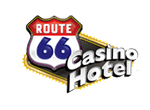Teaching Children about Gambling
Some of the RGANM member casinos provide family entertainment options such as bowling, restaurants, concerts, and social activities for patrons under the age of 21. Just as in any other public place, we encourage parents to supervise their children at all times while at a casino property, and to educate children about the risks of excessive gambling.
Many adults who seek help for problem gambling through RGANM began their gambling habit as minors, sometimes with card games played as a family. It is the responsibility of adults, local law enforcement, and gambling establishments to educate youth about gambling in general, in order to prevent minors from making choices that can compromise their otherwise bright futures.
Please join us in our efforts to educate children and teens about gambling behaviors. These are things we hope parents will share with younger children:
- Gambling is a form of entertainment for adults; it is not a way to make money. It’s not glamorous, it’s just a game, and no one has such “good luck” that they win all the time.
- Games played as a family should not focus on gambling. Make card games and other games about the fun and relationship you have together. Blackjack, for example, can be a good way to help children learn math but shouldn’t be played with coins or chips.
- Supervise online activity, apps and games. Monitor the sites your child visits. Some use pretend money as a wagering activity which can teach children the “high” of winning money. Be aware of online casinos, which have fairly loose verification systems. With older youth who may have access to a debit or credit card, review the bank statements and talk with your child if any charges are out of place.
Any time parents bring children to a casino for entertainment or dining, the children must be properly supervised. If casino security staff sees unattended children, they will follow appropriate protocol and try to locate a parent. If your child goes missing in a casino, contact a casino staff member immediately. RGANM casinos’ staffs are advised to alert the proper authorities if they perceive neglect of children at one of our casinos. Staff can and will contact the New Mexico Children, Youth and Families Department or local law enforcement in instances of neglect.
If you do have concerns about your child and gambling, the sites below may be helpful. The Responsible Gaming Association of New Mexico work to educate about the need to keep gambling as entertainment, and to provide prevention and treatment. If you are concerned about gambling in your life or that of your family, see our resources on the Get Help page.
Helpful Links:
http://www.safestakes.org/blog/how-to-prevent-teen-gambling-a-parents-guide/
http://www.safestakes.org/blog/teen-gambling-3-talking-points-parents-need-to-know/
“My awareness about gambling started when I was a child. In Navajo tradition, there are traditional games that involve some kind of wager. Nobody identified it as gambling. It was just a game… but it was how I got hooked on winning, and gambling.” ~JJ Otero
Watch our 30-minute documentary on RGANM and the compulsive gambling resources that are available.

Gambling Help Line
(888) 696-2440
Available 24/7

There Is Hope
“If you are dealing with addiction issues, if you’re dealing with gambling issues, I want to let you know that there is hope. First of all there are people, programs, resources that will allow you to share what you are dealing with; what you are going through. There are so many resources. Try them all and find something that works.”
~ JJ Otero

Warning Signs Of A Problem
Use these 10 questions to ask yourself if you might have a gambling problem:
-
- Lose time from work or family due to gambling?
- Gamble longer than you had planned?
- Gamble to escape worry or trouble?
- Have an urge to celebrate good fortune by a few hours of gambling?
- Borrow money to gamble or pay gambling debts?
- Neglect the welfare of yourself or your family due to gambling?
- Gamble to get money to solve financial difficulties?
- Make promises to yourself or others to stop gambling, only to return to gamble again?
- Sell or pawn personal possessions to get money to gamble?
- Gamble money that should be used for household bills (car payment, mortgage, utilities)?
Treatment Providers: Join our E-mail List to Receive Updates
Counselors, join our mailing list to receive the latest news from our Problem Gambling Conferences
By submitting this form, you are consenting to receive marketing emails from: Responsible Gaming Association of New Mexico. You can revoke your consent to receive emails at any time by using the SafeUnsubscribe® link, found at the bottom of every email. Emails are serviced by Constant Contact















